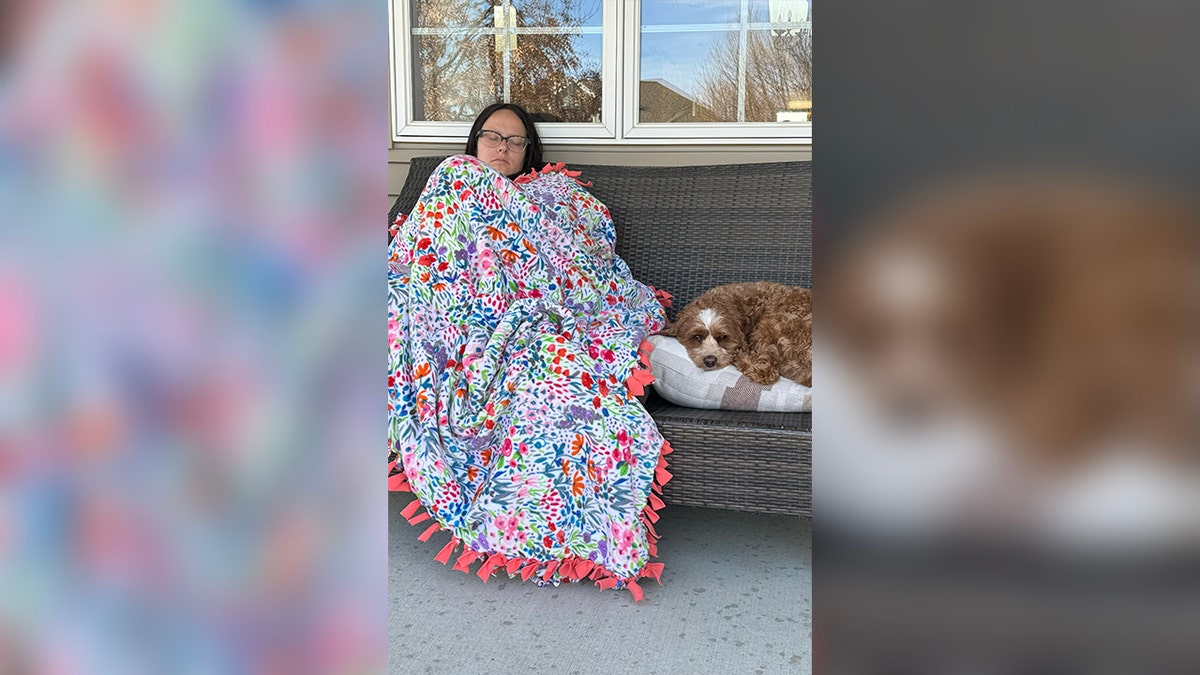“My dog detected my cancer before doctors did”
Breanna Bortner’s dog, Mochi, began to be fixed to the chest before he was diagnosed with a triple-black breast cancer in 2B phase, showing unusual and intuitive behavior throughout the trip.
Breanna Bortner says her dog had a hand (or a paw) to save her life.
“He had always heard stories where people, you know, that his dogs could sense things,” said Minnesota’s wife, now 31, told Fox News Digital during an interview on the camera. (See video at the top of the article.)
In 2023, Bortner, who now directs the blog “Brave Beautiful Boobies” documented his experience, discovered a blow to his chest.
Experimental Women’s Cancer Drug increases survival rates in a remarkable study
There were about six weeks between the discovery of the ski pass and biopsy, he recalled.
In time between the discovery of Bortner’s diagnosis and diagnosis, Mochi was fixed on his owner’s right chest, he said. (Breanna Bortner)
During this time, Bortner’s Cockapoo, Mochi, fixed to the chest with the ski pass. The behavior was a surprise for Bortner, who said the dog had never behaved before.
“Even when I had been sick in the past or I treated other things, I had never done so, so it was the first time I really noticed the tune that was with my body,” he said.
Common cancer treatment may have this painful side effect
The results of the biopsy soon confirmed that Bortner had breast cancer, but said he already knew, courtesy of Mochi.
“I was like, oh, he was known all this time. Before I knew it and the doctors knew it.”
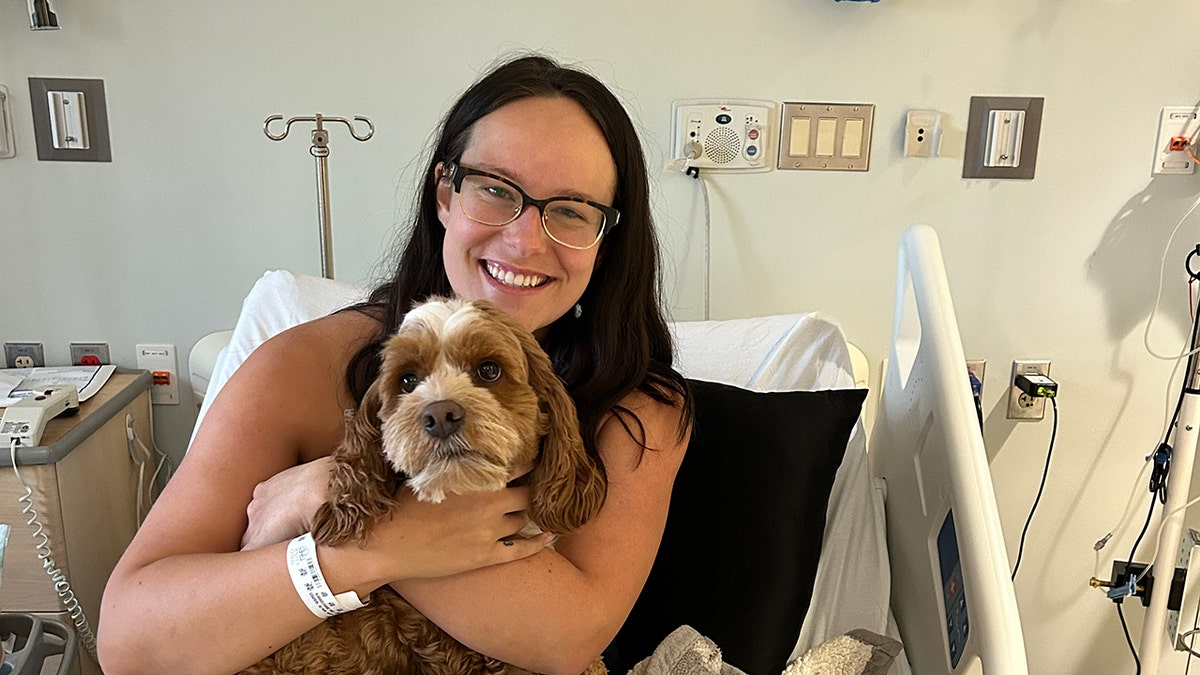
“I was like, oh, it was known for all this time,” Bortner said of his cockatoo, Mochi, who seemed to detect his cancer. (Breanna Bortner)
Doctors diagnosed in Bortner with the Ductal Invasiu Triple Ductal Ductal in 2B phase, a type of breast cancer that has less treatment options than other types of invasive breast cancer, according to the American Cancer Society.
The veteran disability is inclined to the superhero dog with “Batman” brands for support, companionship
This is due to the fact that these cancer cells do not have certain receptors that allow them to be treated with hormonal therapy.
“If cancer has not spread to distant places, surgery is an option. Chemotherapy can be given first to reduce a large tumor, followed by surgery,” reads the ACS website.
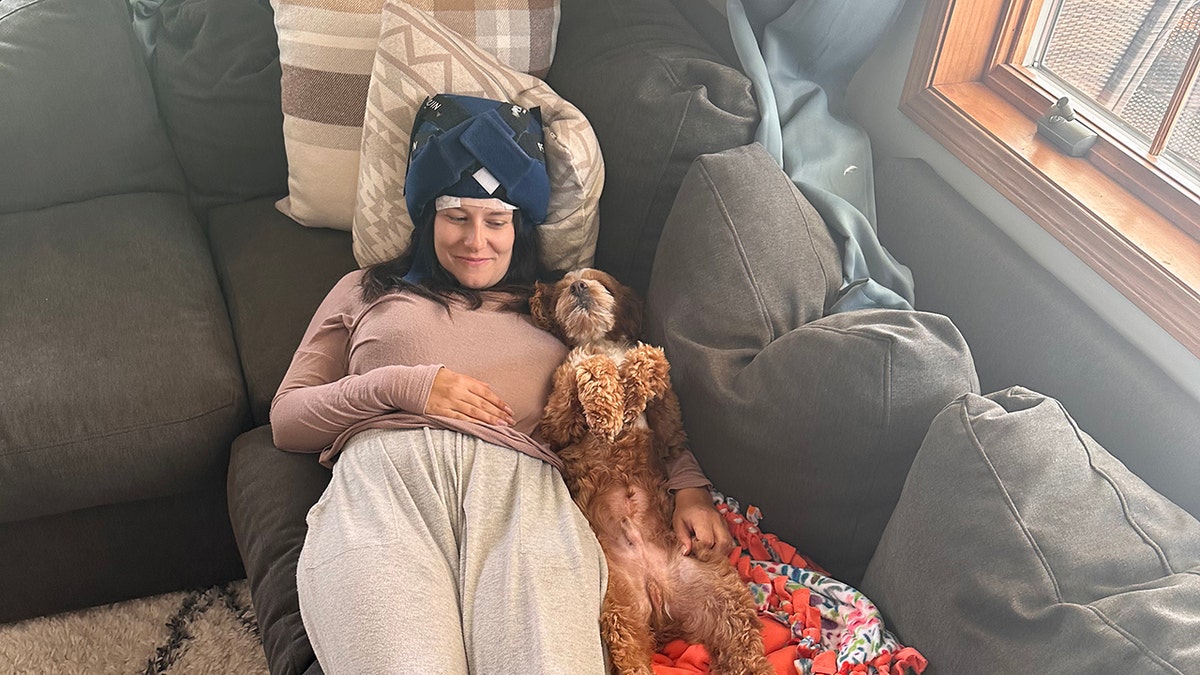
“All about [chemotherapy drugs] He scares, “says Bortner, who decided to refer to them instead of” healing sessions “. (Breanna Bortner)
After doctors confirmed cancer, Bortner said that the process moved very quickly. He underwent five and a half months of chemotherapy (16 rounds in total).
“Chemotherapy is a very frightening and bewildering word,” he said. “All about [chemotherapy drugs] It scares. I found that they call them “cure sessions” instead of chemotherapy was better for me. “
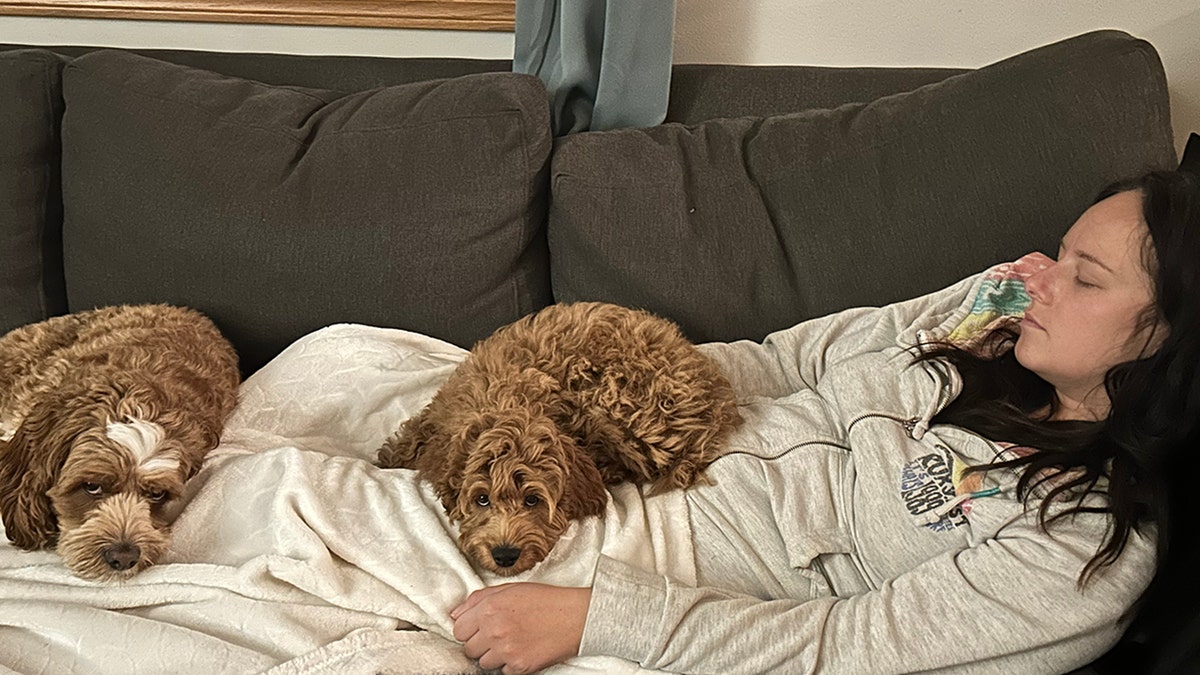
Part of Bortner’s motivation to move on was that he did not want Mochi to lose his “human mother,” he shared. (Breanna Bortner)
Bortner said Mochi, who calls his “soul dog”, remained a source of comfort and a reason to move on on those dark days.
“At that time, he was only 2 years old,” he said.
For more health items, visit www.foxnews.com/health
“And I was like” I can’t leave this land before I do it. “Of course, it should not be what you should be what your human mother must lose.”
The tasks as worldly as feeding the dog or taking it for a walk helped Bortner get off the couch and to move on.
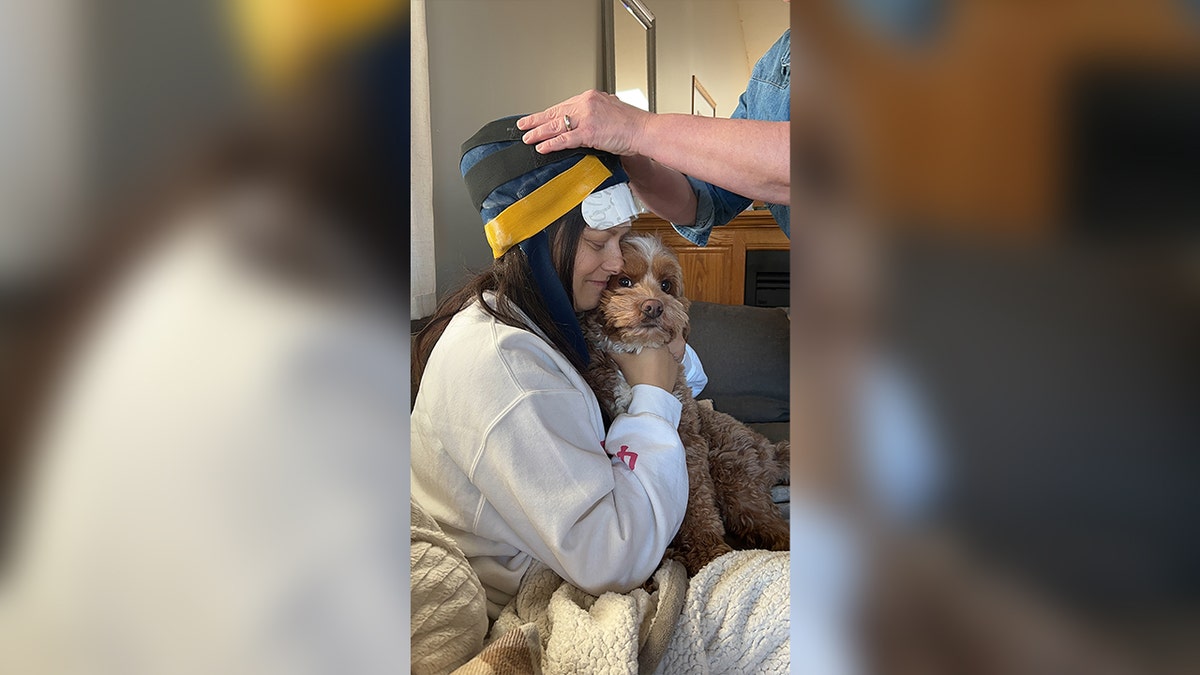
Mochi adapted to Bortner’s new lifestyle during his recovery, keeping the rhythm in slower and shorter walks. (Breanna Bortner)
Mochi learned to adapt to the new Bortner lifestyle during recovery, as his walks were slower and shorter.
When Bortner was after his long periods or sometimes he was crying, the dog was always there to comfort him, he shared.
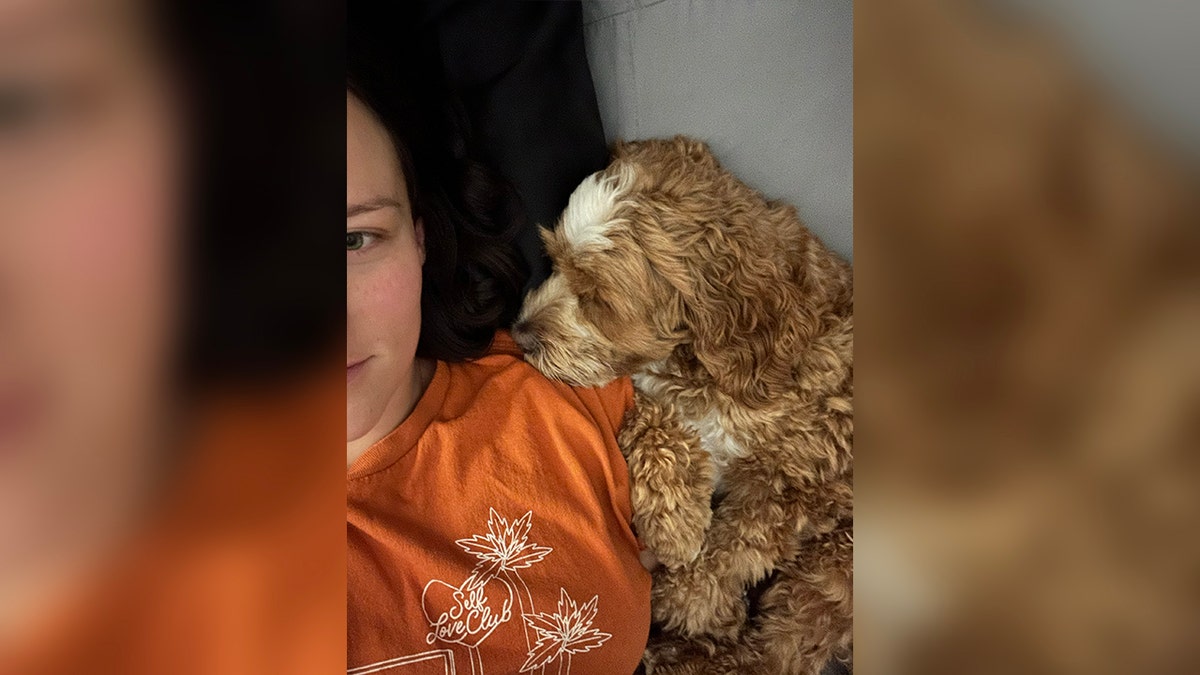
“I can’t leave this land before I do it,” Bortner recalled thinking of Mochi after he was diagnosed. (Breanna Bortner)
When he left for appointments, sometimes several times a day, Mochi would dig to the rubbish to collect his owner’s hair, which fell at that time due to chemotherapy.
“He would excavate my hair to smell,” Bortner said.
Even now, with Bortner almost a year of cancer treatment, Mochi still cava in the garbage out of habit.
Click here to get the Fox News app
Today, Bortner provides support to other people who go through the same experience, who serve as a source of information on what to expect and how to move on.
“It only brings me a smile on my face when things do all circle, and now I am at the other end, lying to people through their displacement against cancer,” he said.
Doctors share information
Dr. Marc Siegel, a clinical professor of medicine at Nyu Langone Health and Fox News Senior Medical Medical Analyst, confirmed that dogs have a “sense of smell”.
“There is evidence in medical literature that, in fact, abnormal cancer proteins can be smelled,” the doctor told Fox News Digital.
“In fact, artificial canine noses have been created based on this response. Artificial intelligence now improves this capacity.”
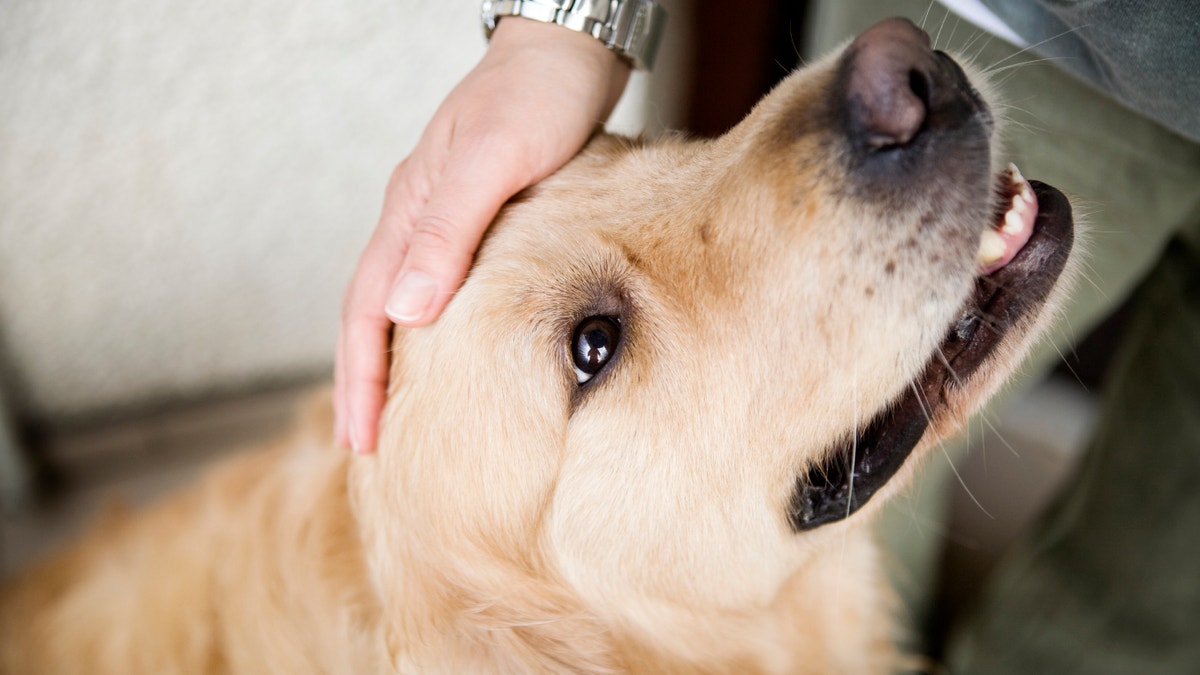
“There is evidence in medical literature that [dogs] In fact, he can smell abnormal cancer proteins, “a doctor told Fox News Digital. (Istock)
Pashthoon Kasi, MD, Medical Director of Gastrointestinal Medical Oncology of the City of Hope of the County of Orange, California, was not surprised by the idea that dogs could detect molecules or by -products of cancer.
Click here to register -you are in our health newsletter
“There is a lot of information that can be found in a non -invasive way in blood, urine or other body fluids, or even the breathing of people with cancer in the body,” Digital News News told Fox.
“Dogs and other animals have been shown to be able to detect some of the smells associated with certain chemicals linked to cancer, which are detected in the blood or body liquids of cancer patients.”
#woman #dog #detected #breast #cancer #doctors #time
Image Source : www.foxnews.com
